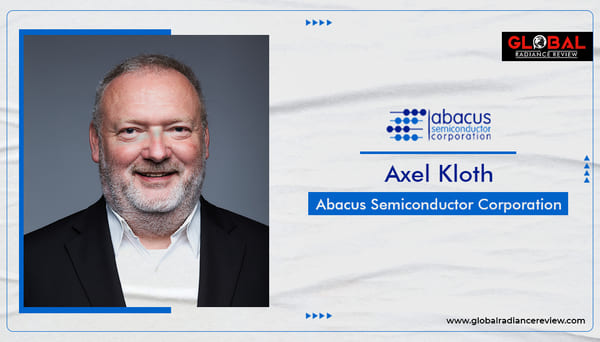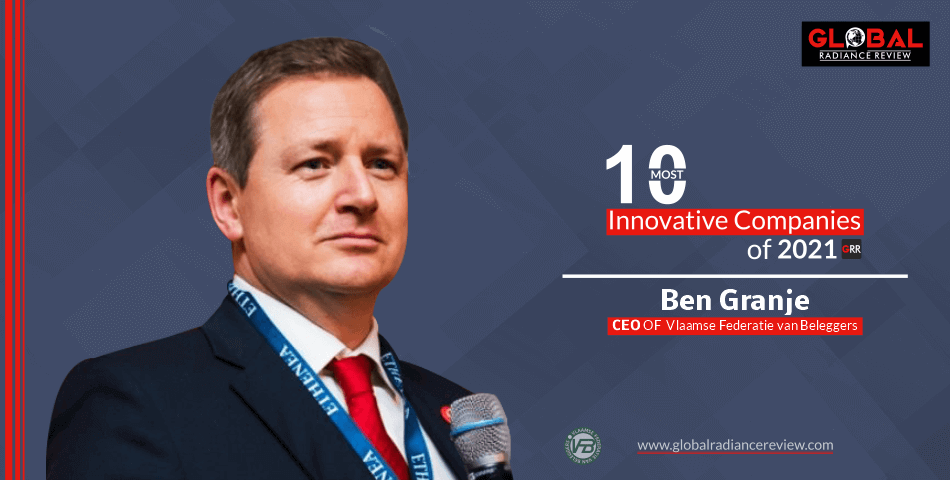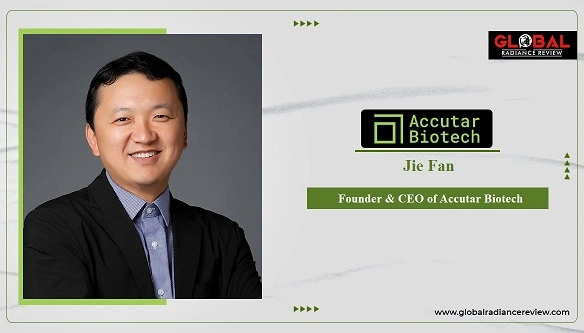Few businesses in the rapidly developing technology field distinguish themselves for their constant commitment to innovation. Breakthroughs now come at an unparalleled rate.
Abacus Semiconductor Corporation is one such business that has had a big impact on the semiconductor market. Abacus Semiconductor, founded by visionary businessman Axel Kloth, has become a world leader in creating cutting-edge semiconductor solutions. Abacus Semiconductor has been at the leading edge of influencing electronics development with a wide range of products with a distinctive value proposition.
Axel Kloth: The Driving Force Behind Abacus Semiconductor's Success
Axel Kloth, the company's founder, is at the center of Abacus Semiconductor Corporation. His love for technology and unwavering pursuit of quality have been crucial to the company's success. Kloth, a well-known personality in the semiconductor sector, brings a wealth of knowledge and experience to the table. Kloth held prominent executive positions in well-known semiconductor businesses before starting Abacus Semiconductor, where he made major contributions to the industry.
His current area of interest is HPC. As Moore's Law ended, General-Purpose Processors no longer exhibit sharp increases in absolute performance and performance per Watt, and the accelerator market is highly fragmented; many experts in the HPC community are raising concerns about the current path of the sector. More critically, no universal interface can support the performance levels of both accelerators and CPUs. Axel has long recognized this tendency and is attempting to address it by providing improved (more linear) speed scaling to improve HPC.
As he was using and building HPC solutions, he participated in cryptography research, safeguarding data in transit and data at rest (before NIST created the crypto task and subsequently defined and published crypto standards). Axel is renowned for being a disruptor and a creative thinker who can develop innovative solutions. He especially enjoys disproving others' assertions that something is impossible to accomplish.
Abacus Semiconductor is on the rise because of Kloth's innovative approach to semiconductor technology. The business has fostered an innovative culture, breaking boundaries and upending accepted standards under his direction.
As a result of Kloth's unwavering dedication to greatness, he has received recognition from others in the field and cemented his status as a true pioneer.
Future-Powered by Cutting-Edge Products
The product portfolio of Abacus Semiconductor Corporation includes a broad range of innovative semiconductor solutions created to satisfy the stringent specifications of numerous sectors. The heart of next-generation electronics, from high-performance computers to IoT gadgets and beyond, comprises Abacus Semiconductor's products.
Since 2012, they have started utilizing RISC-V. They have reinstated it in Verilog because they have adequate knowledge; they don't employ the RocketChip CHISEL core. Its restrictions have been lifted, and support for hardware for virtualization, security, better caching, and core interconnects has been added. In addition, they kept full ISA compatibility.
- Server-on-a-Chip
The Server-on-a-Chip is a multi-core general-purpose processor that can be used standalone or as an I/O frontend for other processors. The open RISC-V instructions set architecture (ISA) is the foundation for all its processor cores. In their version 1 prototype, this multicore processor allows server manufacturers to construct a server from a single chip which comprises 16 RISC-V processor cores as application processors, a dual-core RISC-V processor for mass storage offload and a dualcore RISC-V processor for 10 and 100 Gbit/s network traffic offload, in addition to hardware accelerators for these functions. Every RISC-V processor core is a 64-bit version.
- Heterogeneous Random Access Memory
Multiple memory hierarchies and the related memory controllers comprise the heterogeneous random access memory (HRAM). It has integrated memory controllers and provides 1 TB or 4 TB of random access memory. All versions utilize their full-duplex UHI interfaces to attach to Abacus Semiconductor CPUs.
- Processor for applications
The Application Processor is a CPU with 16 UHI ports and 64 RISC-V cores (v1 prototype). The internal interconnects of all RISC-V processor cores have been greatly optimized, and they are all 64-bit varieties with hardware enhancements for virtualization. Another name for the ASC-AP is the ASC29200.
- Data processing
A Database Processor CPU has 16 UHI ports and 64 RISC-V cores (v1 prototype). The internal interconnects of all RISC-V processor cores have been greatly optimized, and they are all 64-bit varieties with hardware assistance for virtualization. Another name for the ASC-DP is the ASC29300. The ASC-DP is typically utilized with at least one ASC-LSS as an I/O frontend via one of its UHI ports in a deployment.
- Processing Math
The Math Processor is a highly parallel processor that speeds up all openCL and open ACC uses by substituting handwritten C or assembly-language code for enhanced performance, easier portability, and significantly simplified maintenance. It also offers higher precision and accuracy.
They are developing an automated support infrastructure for downloads, updates, FAQs, general customer help, and a bug-reporting system.
Applications Across Industries
Abacus Semiconductor has created processors, accelerators, and smart multi-homed storage subsystems to lower cost and complexity while retaining performance advantages over conventional solutions. The following guide is provided to clarify which product may be used in a customer's application. They can even design an appliance based on the customer’s specifications.
The deployment regions are:
- Online Services
On the Server-on-a-Chip, Web Services (internal and external users) can be run at a reduced cost and with the same performance as conventional solutions. The same holds for additional backend programs, like email.
- OLTP applications with high frequency
If a quantum leap is required, one or more of their Application or Database Processors in conjunction with an array of HRAMs with one or more Server-on-a-Chip as I/O frontend is advised. High-Frequency OLTP applications can be run on the Server-on-a-Chip at a lower cost and with the same level of performance as conventional solutions.
- Applications for traditional databases
There are various potential options for conventional (i.e., disk-based) database applications, depending on the necessary level of performance. The Server-on-a-Chip is a low-cost option with comparable performance to an established solution and built-in RAID/ZFS functionality. The Application or database Purpose Processors with the Server-on-a-Chip are on the high end, with significantly better performance and scalability.
- In-Memory database software
In-memory database applications have various potential options depending on their performance level and the total main memory size needed. The Server-on-a-Chip offers the same performance as a well-known system but with bigger main memory and built-in RAID/ZFS functionality.
- Storage equipment
Hard drives, SSDs, DDR4 or DDR5 DRAM, PCIe- or CXL-attached Flash memory, or M.2 Flash are all used in today's storage appliances. SAS and SATA "speed limits" apply to hard drives and SSDs. Although M.2 and PCIe are faster than SAS or SATA, they still have significant bandwidth and latency restrictions. Even if Flash did take off on the DDR4 bus, its write performance would be subpar.
- Large-Scale matrix math and tensor math as well as any kind of transforms
One or more servers on a chip can act as the front end for as many math processors and HRAM as are required to handle large-scale matrix and tensor math applications. Large-scale (discrete) Fourier transformations follow the same rules.
- Intensive Cryptoanalysis
The application profile of large-scale cryptanalysis and large-scale matrix math is similar; however, integer processing may be necessary for addition to floating-point numbers performance. It can be accomplished by adding Applications or Database Processors.
There are undoubtedly more and more varied deployment areas. Only an outline of the areas where their processors outperform this list intends current technology.
Some Final Words
With its relentless dedication to innovation and excellence, Abacus Semiconductor Corporation, headed by visionary founder Axel Kloth, is revolutionizing the semiconductor sector. The business has established itself as a world leader in sophisticated semiconductor systems through cutting-edge products, distinctive value claims, and a customer-centric strategy. Abacus Semiconductor's technologies are influencing the foreseeable future of electronics, enabling companies worldwide to prosper in the digital era, from data centers to driverless vehicles and IoT devices. Abacus Semiconductor stays on the front edge of technology as it develops, constantly pushing the limits of what is conceivable in the semiconductor industry.
-black.png)










